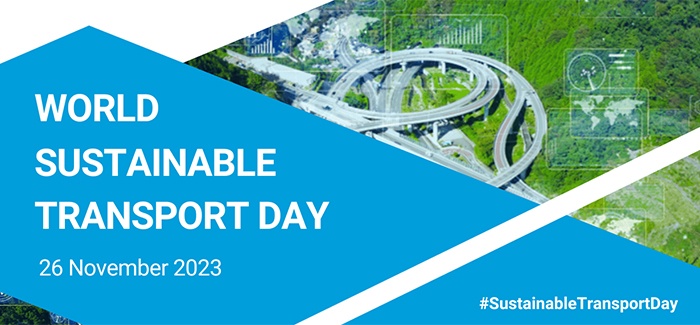Last spring, the UN General Assembly adopted a resolution to establish a global sustainability day for transport. That’s why this year, for the first time, we are celebrating World Sustainable Transport Day on November 26. The UN General Assembly wants member states, organizations worldwide and civil society at large to pay attention to World Sustainable Transport Day by educating and holding events with the aim of increasing the public’s knowledge of sustainable transport issues.
The General Assembly is clear in the transport sector’s important role in providing safe, affordable, accessible and sustainable transport systems for all and in supporting sustainable economic growth, improving people’s social welfare while contributing to improving cooperation and trade both nationally and internationally.
Achieving the goals that have been set both internationally and nationally for sustainable transport with reduced emissions requires major efforts and much is already being done today. At the same time, Maria Stenström, responsible for mobility and behavioral change at the 2030 secretariat, says with others that the statistics are clear, we will not reach our goals with the pace of the transition that is right now.
The car, the fuel and the behavior are three important factors in the work with more sustainable transport. Many times great focus is placed on the car and the fuel with discussions about alternative fuels, electricity and hydrogen and more fuel-efficient vehicles, while we open up to longer vehicle combinations in order to get more goods on every kilometer transported.
However, the discussion focusing on the behavior is not as extensive. But if we are to have the slightest chance of achieving our goals, great efforts must be made here as well. How we choose to travel privately, pooling, route planning and economical driving are some of the areas where we must also focus. Maria Stenström said earlier this year in an interview that:
– The transport sector is an advanced system of needs, services, vehicles, companies and infrastructure. Therefore, the transition needs to take place on several fronts at the same time. There is no one solution, everyone needs to contribute and dare to change – from the fuel supplier to the work commuter. Here, of course, political guarantees are needed so that companies dare to invest in new technology with long-term game rules over mandate periods, but also knowledge of their own climate impact and how small adjustments can generate big changes.
